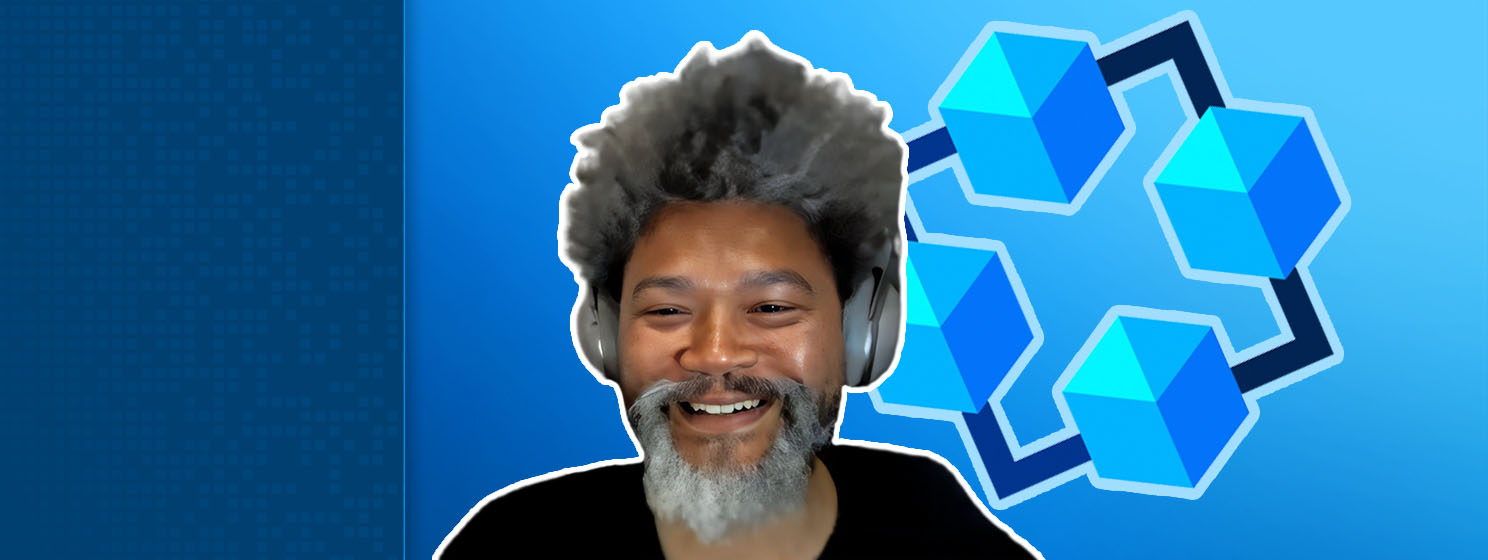|
Getting your Trinity Audio player ready...
|
On the latest episode of the CoinGeek Weekly Livestream, Stephan February, architect of Overnode, joined Kurt Wuckert Jr. to tell him about his latest project. This episode was an insightful deep dive into peer-to-peer (P2P) networks, the use cases for micropayments, and more.
Who is Stephan February and what is Overnode?
February has been on the CoinGeek Weekly Livestream before. He’s a coder and dedicated BSV builder who has developed software, token protocols, and much more.
“Overnode is not a wallet, but it has a wallet built into it,” February explained. It’s a native mobile app that joins two networks; its own peer-to-peer mobile network and the Bitcoin network itself.
Overnode has its own P2P network, so it can do Simplified Payment Verification (SPV) and exchange arbitrary data separate from the Bitcoin network, February noted.
What is the practical use of Overnode?
February explained that Overnode was born out of an obsession with computing and P2P networks in general. He doesn’t want to have a backend for it; unlike other apps, there’s no server to coordinate user activity. This will be local-first for data and will not have such a server.
February wants Overnode to be as useful as Twitter, Slack, and Telegram. He envisions micropayment-incentivized rules in Spaces, such as someone being able to pay .1 BSV to grab the mic and shut everyone else up for a minute in a Space. He also sees how micropayments could be useful for invite-only Spaces, paying hosts, banning specific identities, and so on.
Unlike in Bitcoin, where P2P means person-to-person, in Overnode, it means peer-to-peer networks. Overnode is a P2P gossip network resembling a mesh; once he properly grasped it, he saw how all sorts of use cases are possible.
What are the incentives to run and secure Overnode?
Looking back to torrent networks, February explained how there are seeders and leeches. The latter contributes nothing to the network, and he has a few choice words for them.
These networks relied on altruism, but that’s not necessary now that we have micropayments. With them, we can financially incentivize hosting, connecting, sharing, etc; you can get paid for people moving, storing, and sharing data in the network.
Having this network of incentivized operators that assist in the liveness of data further opens up the potential for what is possible, all without the need for an expensive backend server.
Wuckert noted that Satoshi Nakamoto preferred true peer-to-peer transactions, with IP addresses being the original way. Paying public keys was seen as an OK compromise if the user was offline. He thinks Overnode could bring back many of those original ideas; it’s somewhat cypherpunk in that sense.February said he wanted to go back and re-examine some of the assumptions from the cypherpunks in the early 2000s. As he builds out Overnode, he realizes he is architecting systems of serverless interaction, and he can see the beginnings of a circular data economy which can evolve.
For example, he can curate information and charge a fee for access.
How will you get past Overnode becoming a tool for grey and black markets?
February said he only cares to the extent that he doesn’t want it to be used to harm people. However, he is also trying to build the application in such a way that harm reduction incentives are implemented at the edge without infringing upon the liberty of individuals.
There will be tools to allow individuals to distance themselves from this ‘dark’ activity. As with the Internet, there are ways to distance yourself from it. For example, there could be curated, verified marketplaces that are known as safe.
What is the problem that Overnode solves?
February isn’t sure this is a problem for most people, but it is for him. He doesn’t like how the Internet has evolved over time, and he doesn’t like how human interactions are brokered by web browsers and social media platforms. He’s always been interested in what the world would look like if we had Bitcoin in the heyday of P2P networks in the late 90s and early 2000s.
While the platform model is great for many things, coordinating human activity is one. But there are downsides, and he wants to enable peer-to-peer interactions with true data privacy. Essentially, it’s his contribution to trying to solve the platform dystopia we find ourselves in.
To hear more about criticisms of Overnode, what adoption might look like, why tokens aren’t products, and more, check out the livestream episode here.
Watch: Peer-to-peer electronic cash system—that’s micropayments

 03-01-2026
03-01-2026 




